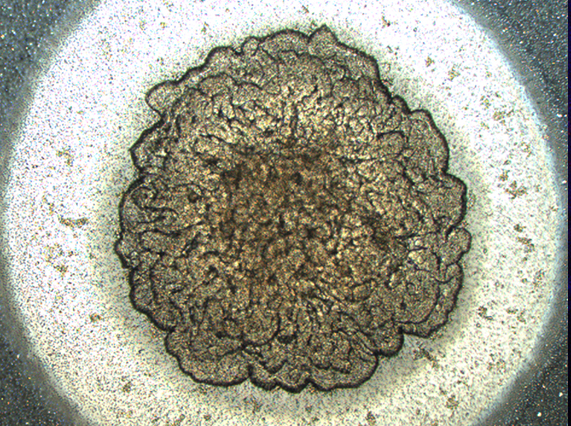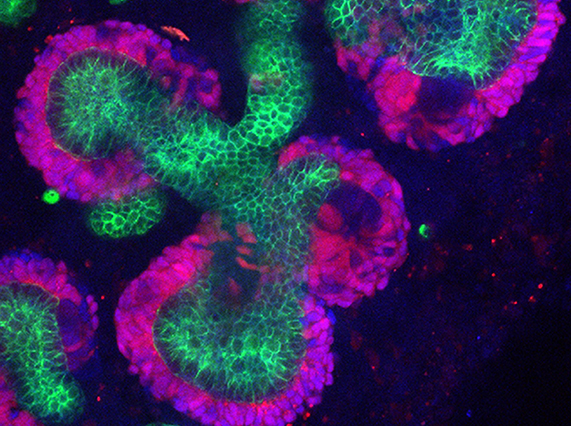Organ transplantation saves lives. However, the gap between organ supply and organ demand is ever increasing. Kidneys account for more than 80% of the donor organs needed by patients awaiting transplantation. Thus, it is an urgent task to find ways to build transplantable kidneys.
Several key questions drive our research:
- What are the best kidney stem/progenitor populations for the purpose of generating new kidneys in vitro and for regenerating existing kidneys in vivo?
- How can we produce large quantities of high-quality kidney stem/progenitor cells in vitro and trigger/enhance their activities in vivo?
- How can we use mass produced kidney stem/progenitor cells as building blocks to generate a transplantable kidney?
Nephron progenitor cells (NPCs) are kidney stem cells that generate nephrons, the functional units of the kidney. In humans, NPCs exist only in the fetal stage, leaving human adult kidneys with very limited regenerative potential. We developed technology to derive NPC lines from the fetal kidneys of various mammalian species, including humans, in a three-dimensional culture format. We also generated NPC lines from human pluripotent stem cells via directed differentiation, and from adult fibroblasts via direct lineage reprogramming. Combining primary and patient-specific NPC lines with CRISPR-Cas9 gene-editing technology and different animal models, we are now exploring broad research areas, including the study of human kidney organogenesis, disease modeling, drug screening, kidney-on-a-chip and cell replacement therapies.
In addition to NPCs, during kidney organogenesis, several other kinds of stem/progenitor populations interact with each other to shape the complete kidney. We are now developing new technologies to provide an unlimited and pure supply of those different kidney stem/progenitor cells. The complete set of expandable kidney stem/progenitor cells are valuable building blocks to generate transplantable kidneys through various engineering techniques.
Apart from kidney regeneration, we are also actively exploring the production of medically useful stem/progenitor cells in other organ systems to provide novel therapeutic approaches for translational medicine.


